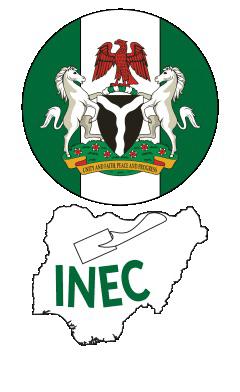Defection Storm: A looming threat to Nigeria’s political stability, by Abba Dukawa
When politics is no longer a mission but a profession, politicians become more self-serving than public servants”_ – Emmanuel Macron, President of France.
This quote highlights the distinction between politicians driven by purpose (mission) and those who view politics as a career (profession). When politics is a mission, politicians prioritize the greater good, guided by responsibility and duty.
In contrast, when politics becomes a profession, politicians are driven by personal ambition, power, and financial gain, prioritizing their interests over public needs. The quote starkly captures Nigeria’s political landscape, where politics has devolved into a profession, with politicians often prioritizing personal interests over public service, resulting in self-serving behavior.
Frequent party switches erode public trust, undermine credibility, and negatively impact governance. Nigeria’s constitution allows defections with certain conditions, but it’s silent on executive office holders. The Supreme Court has ruled that electoral mandates belong to parties, not candidates. To curb defections, lawmakers should consider constitutional amendments requiring elected representatives to vacate seats if they defect.
Nigeria has a long history of party defections, dating back to 1951. This phenomenon has persisted for 70 years, significantly impacting democracy. In 2013, five PDP governors defected to the APC, and similar instances have occurred since. These politicians often criticize opposition parties, only to later seek refuge in the same parties they maligned, supporting the notion that “in politics, there are no permanent friends or enemies, only permanent interests.”
READ ALSO: Opinion: On the Breach of Security Architecture of the NDA – Isaac Ochegbudu
*Recent Defections, At least four PDP governors defected to the APC between April and October 2025, including: Delta State Governor Sheriff Oborevwori (April), Akwa Ibom State Governor Umo Eno (June), Enugu State Governor Peter Mbah (October) and Bayelsa State Governor Douye Diri (October). This highlighting a significant shift in Nigeria’s political landscape.
Based on recent developments, it’s reported that the APC has gained significant numbers in both the Senate and the House of Representatives due to defections. The APC now holds 74 seats in the Senate. Previously, the APC had 70 seats after four senators from the PDP and LP defected to the APC in July 2025.
The APC has 207 members in the House of Representatives after gaining 30 seats from opposition parties since the inauguration of the 10th National Assembly. In the green chamber The opposition parties have been significantly weakened, with the PDP reduced to 37 lawmakers. Overall, the APC has solidified its dominance in the National Assembly, holding a significant majority in both chambers.
Nigeria appears to be gradually embracing a dominant-party system, where one party’s grip on power is sustained not by superior governance but by absorbing opposition forces. This trend poses a significant threat to federalism, as it fosters conformity over competition, loyalty over merit, and silence over dissent.
The concentration of power in a single entity is particularly perilous for a country as diverse and complex as Nigeria, potentially leading to political stagnation, marginalized groups’ resistance, and the eventual emergence of a one-party state.
A larger implications to the political landscape of the country, a democracy without a robust and credible opposition is a farce. The mass defection of opposition figures to the ruling party undermines institutional checks and balances, emboldens authoritarian tendencies, and reduces the National Assembly to a mere rubber stamp.
When opposition lawmakers defect en masse, they abandon their critical role of holding the government accountable, paving the way for executive overreach and weakening oversight mechanisms that protect citizens from state abuse.
The casual party-switching phenomenon in Nigeria signals the erosion of ideology in politics. With parties becoming indistinguishable, electoral choices are reduced to personalities rather than policies.
This development undermines informed decision-making, as voters are left with little to differentiate between parties. The APC and PDP have become virtually indistinguishable, filled with the same faces, ideas, and contradictions.
READ ALSO: The Dukawa of Niger: Preserving tradition and honour in modern times, by Salim Sani
This absence of ideological competition has dire consequences. Elections devolve into contests driven by tribal, religious, or pecuniary considerations, rather than policy debates. This ideological bankruptcy threatens the very foundations of Nigeria’s democracy, and it’s imperative that stakeholders address this issue to restore the country’s democratic health.
abbahydukawa@gmail.com
Follow the Neptune Prime channel on WhatsApp:
Do you have breaking news, interview request, opinion, suggestion, or want your event covered? Email us at neptuneprime2233@gmail.com




